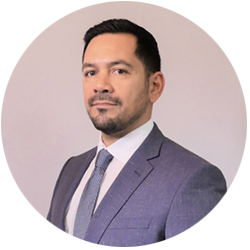Bus accidents are traumatic events that can leave victims with devastating physical injuries, emotional scars, and financial burdens. In Florida, the legal landscape surrounding bus accidents is complex, particularly when it comes to determining fault and liability. This complexity is heightened by the state’s comparative negligence laws, which can significantly impact the outcome of a personal injury claim. Understanding how comparative negligence works in the context of Florida bus accidents is crucial for anyone involved in such an unfortunate event.
Florida operates under a system of comparative negligence, which means that when an accident occurs, the responsibility for the incident can be divided among all parties involved. This division of fault plays a critical role in determining the amount of compensation that a victim can recover in a personal injury lawsuit. Unlike some states that adhere to a strict contributory negligence rule, which completely bars a plaintiff from recovering any damages if they are found to be even slightly at fault, Florida’s comparative negligence system is more lenient but still requires careful navigation.
In the aftermath of a bus accident, multiple factors come into play when determining fault. These factors include the actions of the bus driver, the condition of the bus, the conduct of other drivers on the road, and even the behavior of pedestrians. For instance, if a bus driver was speeding or driving recklessly, they may be found at fault for the accident. However, if another driver cut in front of the bus without warning, that driver may also share a portion of the blame. In some cases, even the passengers on the bus or the bus company itself can be held partially responsible if it is found that they contributed to the conditions that led to the accident.
In a Florida bus accident case, the jury or judge will assess the evidence and assign a percentage of fault to each party involved. This percentage directly affects the amount of compensation a victim can receive. If a victim is found to be partially at fault for the accident, their compensation will be reduced by their percentage of fault. For example, if a victim is awarded $100,000 in damages but is found to be 20 percent at fault, their compensation will be reduced by 20 percent, leaving them with $80,000.
This system is known as pure comparative negligence, and it allows victims to recover damages even if they are partially responsible for the accident. However, it also means that victims must be prepared to defend themselves against claims that they contributed to the accident, as the opposing party will likely try to minimize their own liability by shifting blame onto others. This can make the process of pursuing compensation in a bus accident case particularly challenging, as it requires a thorough understanding of the law and the ability to effectively present evidence that supports the victim’s position.
The process of gathering evidence in a Florida bus accident case involves a comprehensive investigation. This investigation may include reviewing traffic camera footage, analyzing the bus’s maintenance records, interviewing witnesses, and consulting with accident reconstruction professionals. Each piece of evidence is crucial in building a strong case and ensuring that fault is accurately assigned. Given the complexities of comparative negligence, it is essential for victims to have a clear understanding of how each piece of evidence can influence the outcome of their case.
One of the key challenges in a comparative negligence case is proving that the bus driver or another party was primarily at fault. This requires demonstrating that the other party’s actions were more significant in causing the accident than the victim’s actions. For instance, if a bus driver was driving under the influence of alcohol at the time of the accident, this would be a strong indication of negligence on the part of the driver. However, if the victim was also engaged in risky behavior, such as texting while crossing the street, the victim’s compensation may be reduced accordingly.
Florida law also recognizes the concept of joint and several liability, which can further complicate bus accident cases. Under joint and several liability, if multiple parties are found to be at fault, each party can be held responsible for the full amount of the damages, regardless of their individual percentage of fault. This means that if one party is unable to pay their share of the damages, the other parties may be required to cover the difference. In bus accident cases, this concept can come into play when there are multiple defendants, such as the bus driver, the bus company, and other drivers involved in the accident. Understanding how joint and several liability interacts with comparative negligence is crucial for ensuring that victims receive the compensation they deserve.
Choosing a Car Accident Attorney Personal Injury Case ValueRelated Videos
Another important aspect of comparative negligence in Florida bus accidents is the role of insurance. Florida is a no-fault state, which means that in the event of a car accident, each driver’s insurance typically covers their own medical expenses and lost wages, regardless of who was at fault. However, when it comes to bus accidents, the situation can be more complicated. If the damages exceed the coverage limits of the no-fault insurance, or if the injuries are severe enough to meet certain thresholds, the victim may be able to pursue a personal injury lawsuit against the at-fault parties. In such cases, comparative negligence becomes a key factor in determining the outcome of the lawsuit and the amount of compensation that can be recovered.
The interplay between no-fault insurance and comparative negligence can create challenges for bus accident victims, particularly when dealing with insurance companies. Insurance companies are often motivated to minimize payouts and may attempt to use comparative negligence as a means to reduce the amount of compensation awarded to the victim. This is why it is essential for victims to understand their rights and be prepared to counter any attempts by insurance companies to shift blame onto them.
In addition to the legal complexities of comparative negligence, bus accident victims in Florida must also navigate the emotional and physical toll of the accident. The aftermath of a bus accident can be overwhelming, with victims facing medical bills, loss of income, and the challenges of recovery. The legal process can add to this burden, particularly when dealing with the intricacies of comparative negligence. For this reason, it is crucial for victims to seek support from those who understand the legal system and can provide guidance throughout the process.
Victims of bus accidents in Florida should also be aware of the statute of limitations for filing a personal injury claim. In Florida, the statute of limitations for personal injury claims is generally four years from the date of the accident. However, there are exceptions and variations depending on the specific circumstances of the case. Failing to file a claim within the statute of limitations can result in the loss of the right to pursue compensation, making it essential for victims to act promptly.
It is also important for bus accident victims to understand that even if they are partially at fault for the accident, they still have the right to pursue compensation. Comparative negligence does not bar victims from recovering damages, but it does require them to be prepared to defend their actions and present a strong case. This is why it is vital for victims to seek legal representation from those who have experience with Florida’s comparative negligence laws and who can effectively advocate on their behalf.
As bus accident cases can be complex, involving multiple parties and intricate legal principles, it is often in the best interest of the victim to seek legal assistance early in the process. This can help ensure that the victim’s rights are protected, that evidence is preserved, and that the victim is well-prepared to navigate the challenges of a comparative negligence claim. The legal system can be daunting, particularly for those who are already dealing with the physical and emotional aftermath of an accident, but having the right support can make a significant difference in the outcome of a case.
Understanding comparative negligence in the context of Florida bus accidents is essential for anyone involved in such an unfortunate event. The system of comparative negligence allows for the division of fault among all parties involved, which directly impacts the amount of compensation a victim can recover. While this system provides a more lenient approach than strict contributory negligence, it also requires careful navigation and a thorough understanding of the law. Victims must be prepared to defend themselves against claims of shared fault and to present strong evidence in support of their position.
If you or a loved one has been involved in a bus accident in Florida, it is important to seek legal guidance to navigate the complexities of comparative negligence and to ensure that your rights are protected. The legal team at Victory Law Firm P.A. is dedicated to providing the support and advocacy that bus accident victims need to pursue the compensation they deserve. With extensive experience in handling Florida bus accident cases and a deep understanding of comparative negligence laws, Victory Law Firm P.A. is here to help you through every step of the legal process. Contact us today to discuss your case and learn how we can assist you in obtaining the justice and compensation you are entitled to.



